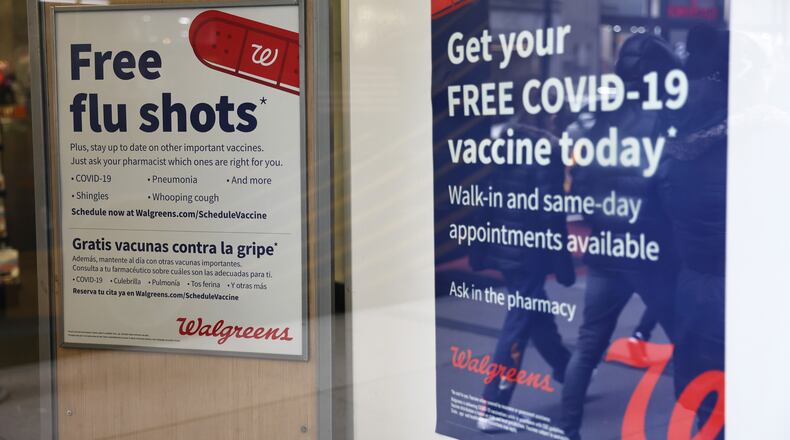Flu activity is rising rapidly as we head into Christmas week, according to the latest figures from the Georgia Department of Public Health released Friday.
Flu activity has reached “very high” levels in Georgia, according to DPH. The latest flu report for the week ending Dec. 16 in Georgia shows the percentage of people going to the doctor for flu-like symptoms has reached 7.6% of all doctor visits. The data is based on the number of people going to the doctor with flu-like symptoms, including fever, cough or sore throat. That means it could include cases of people who are suffering from other viruses: either the flu, or COVID or RSV.
Georgia and eight other states are listed as having a “very high” number of respiratory illnesses, and an additional 14 states are in the “high” category, according to surveillance by the Centers for Disease Control and Prevention for the same week.
COVID numbers have also risen in recent weeks but they are not as high as previous years.
The latest report’s sharp jump in flu activity is higher than seen in the same week in the previous four years. The flu is always unpredictable so no one knows if will it skyrocket like it did during the 2019-2020 flu season or if flu activity will steadily fall like it did last year.
Since the start of the flu season in October, 762 people have been hospitalized in the eight-county metro Atlanta region (Fulton, DeKalb, Clayton, Cobb, Douglas, Gwinnett, Rockdale, and Newton) through Dec. 15, the most recent data available. A year ago, the total number of hospitalizations for this time period was 1,645.
Since the start of the flu season, eight Georgians have died from complications from flu, including a child between the ages of 5 and 17,
That is lower than last year by this time, 33 Georgians had died from flu complications.
Physicians agree the best way to avoid spreading and contracting the flu and COVID is to get vaccinated and stay home if you are sick. Other steps to take to protect yourself from the flu include washing your hands frequently and avoiding contact with people who are sick.
The CDC still says anyone who tests positive for COVID should isolate for at least five days. And for 10 days after testing positive, people should wear a high-quality mask such as a KN95 any time they are around other people.
So what if your holiday get-together falls within the first five days of testing positive? “Unfortunately, you’ve got to stay home,” said Dr. Luke Lathrop, chief medical officer at SmartMED Drive-Thru Medical Care in Roswell in a recent interview. “You’d feel pretty terrible if your holiday gift to your family member was COVID. The same goes for the flu or whatnot,” he said.
This year for the first time, vaccines are available for all three of these circulating viruses.
Dr. Jayne Morgan, executive director of health and community education for Piedmont Healthcare, noted COVID is still the virus causing the most hospitalizations and deaths.
Morgan recently told The Atlanta Journal-Constitution that there is a sense of urgency to increase vaccinations as hospitalizations for these viruses are rising across the country. At the same time, doctors are also noting an uptick in other illnesses, including strep throat and pneumonias, especially in children.
Morgan said vaccinations against the three major respiratory illnesses can help lower the risk of other illnesses. This is because if you are infected with any of these viruses, it weakens your immune system and makes you more susceptible to other circulating respiratory infections as well, she said.
While it’s best to get the flu shot by end the of October, experts including the CDC say it’s better to get the vaccine late than to skip it entirely.
Keep Reading
The Latest
Featured




